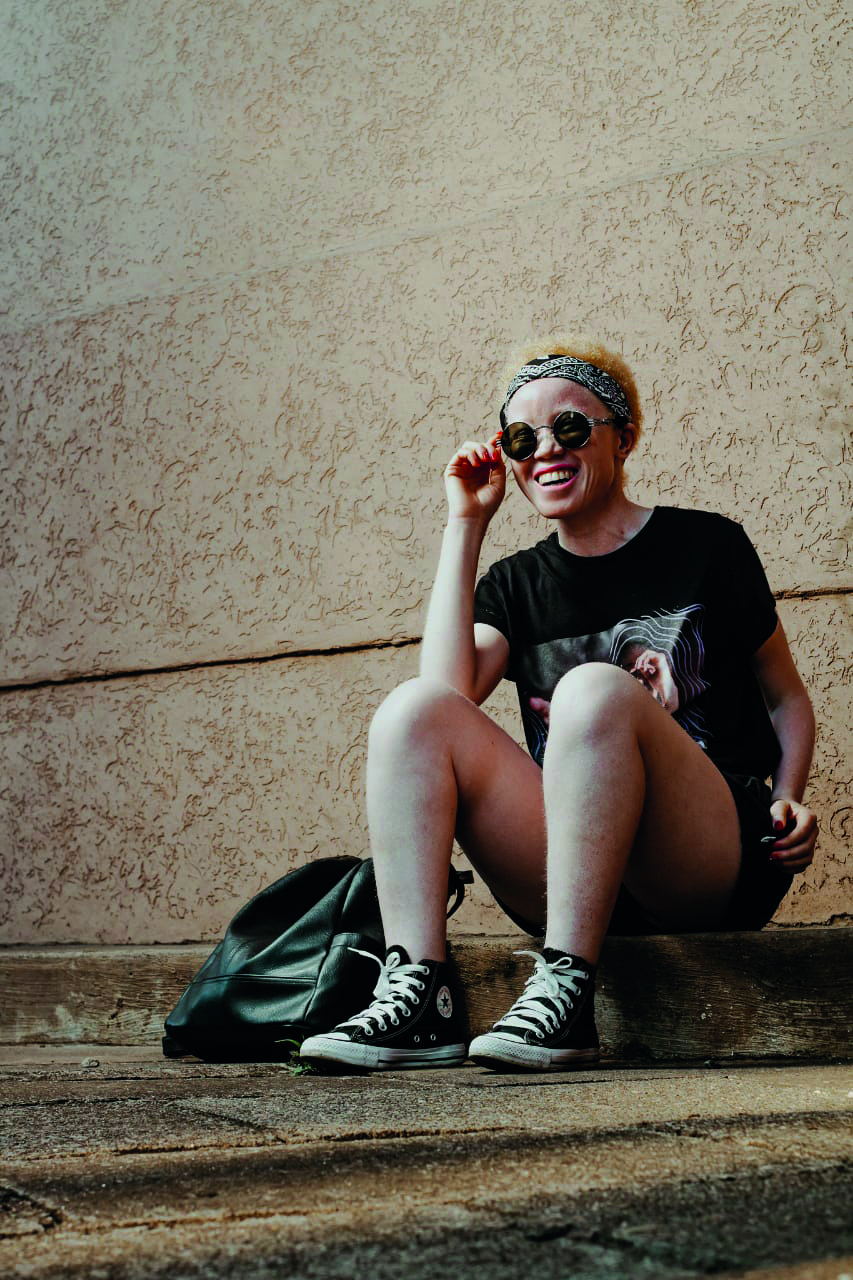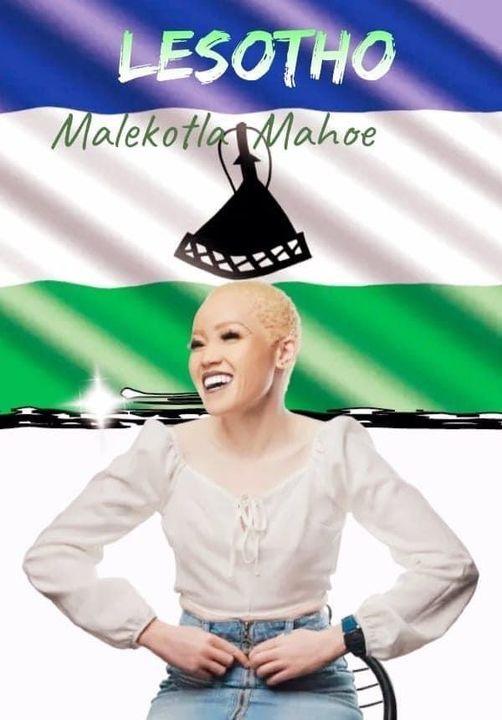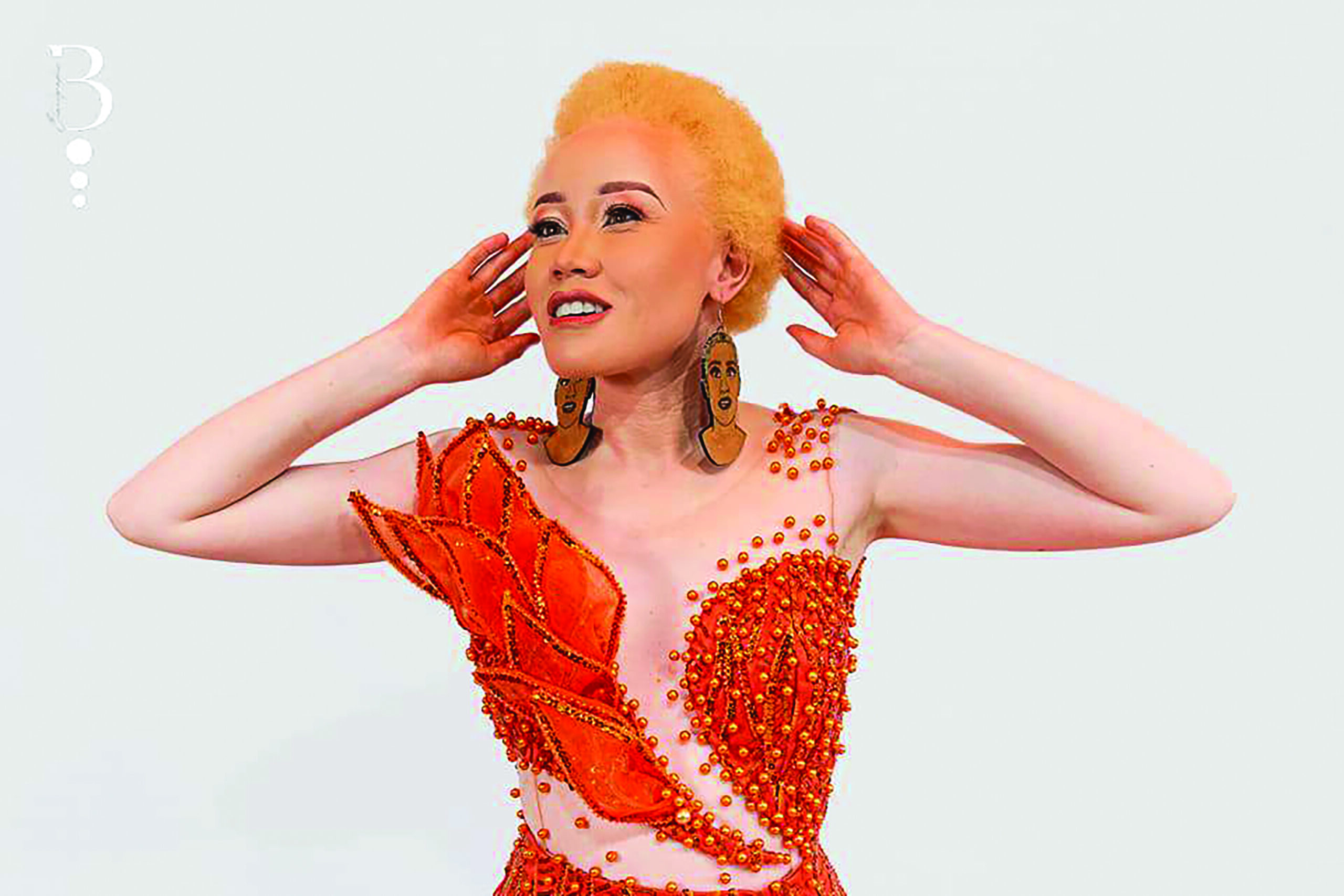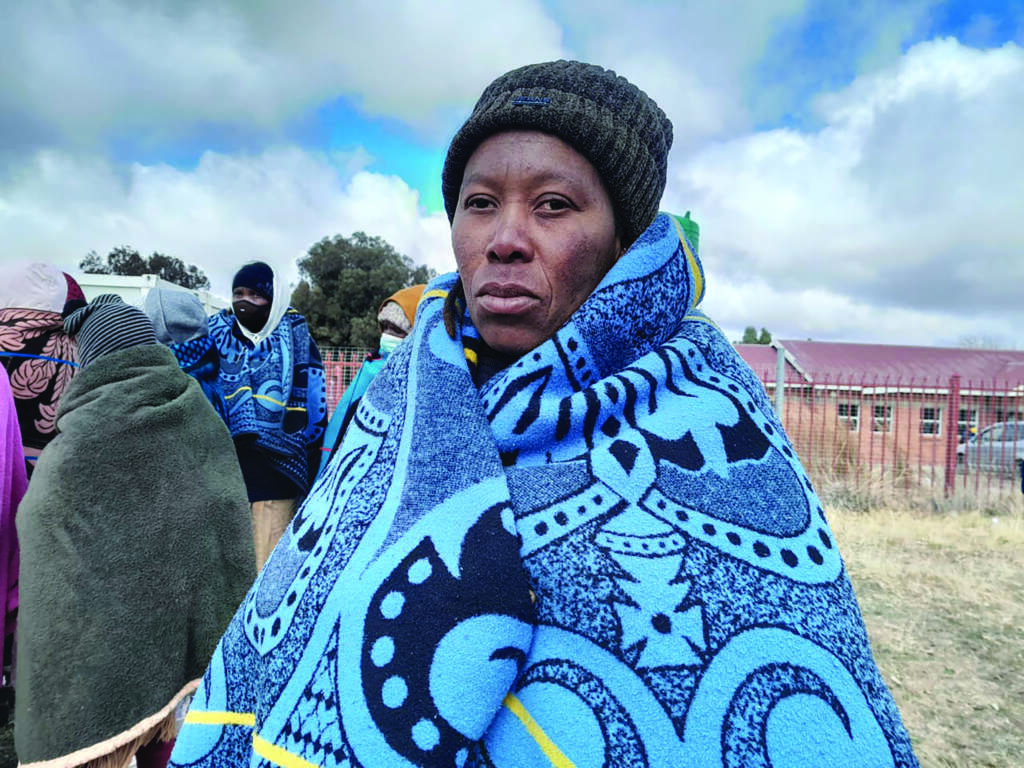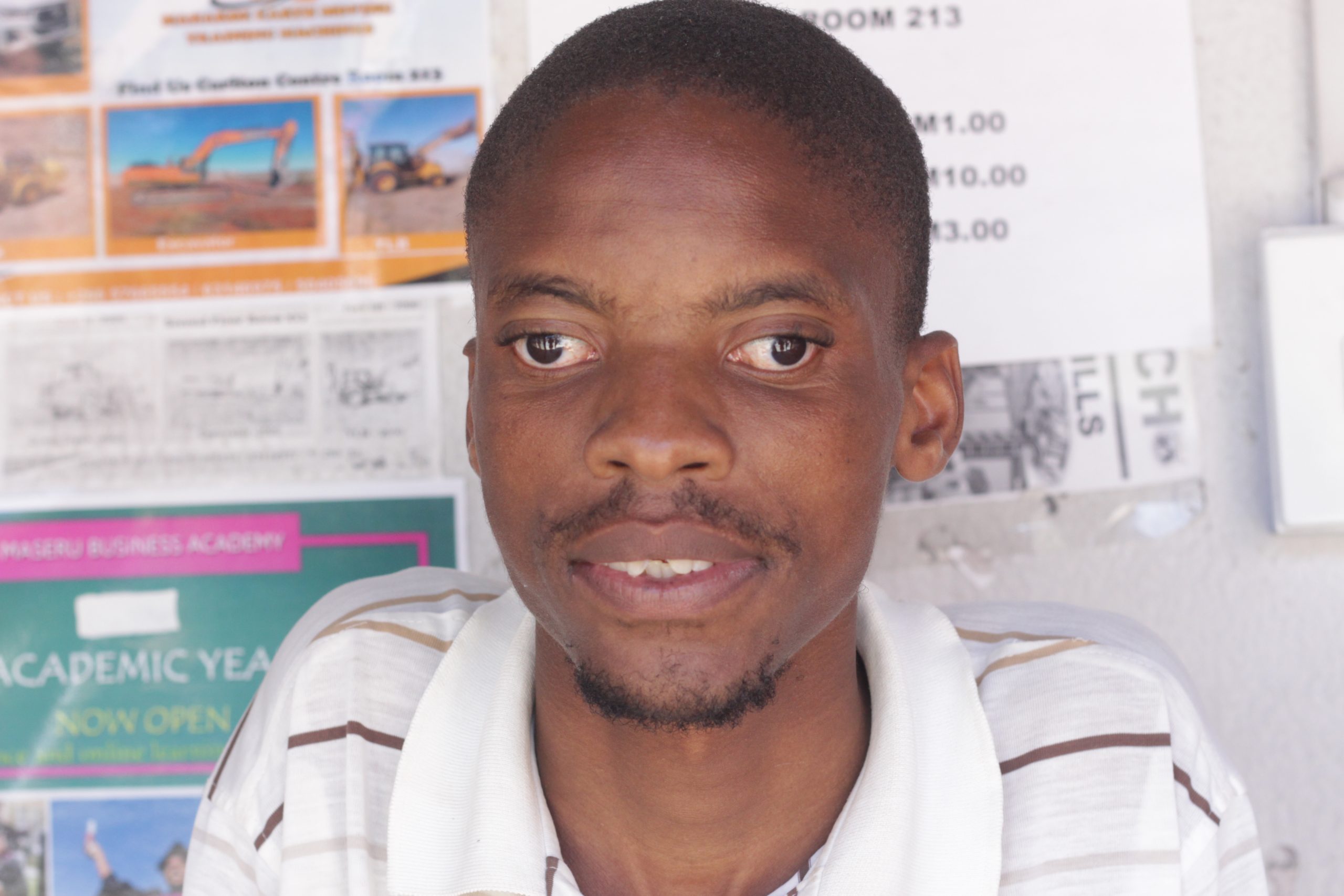Mahooe relates her journey living with albinism
Ntsoaki Motaung
“The awkward stares I got from the very first time I went for a school entry interview for my primary school admission opened my eyes and made me realise that I might be a little different,†she says in reminiscence.
This is ‘Malekhotla Mahooe, a 27-year-old lady of Roma Ha Lebamang in the outskirts of the capital Maseru who lives with a pigmentation condition known as Albinism.
Mahooe says as far as she knows, she is as normal as about everyone else save to say that she may look a bit different from other ordinary people in the streets, although that has not been the kind of reception afforded her from the public all her life.
She says as she grew up, she always wondered and was forced to live with the question of whether it could ever be possible for her to be in any public space or attend a public gathering without getting those awkward stares which were so uncomfortable that she would often feel like she could somehow hide to avoid the stares.
“I used to fell like I could hide my albinism in order to avoid the backlash from the public who make me feel that I am different, as evidenced by discrimination, myths and all other things people used to say to me. Some would not even allow me to touch their things fearing that by so doing I might infect them,†she says.
She says although she has enjoyed amazing support from her family and loved ones close to her she has still had to live with the fear and worry of the myths around people with her condition such as that their body parts can be harvested to be used for superstitious and medicinal requisites to feed their strange fetish beliefs. This has and continues to put the lives of people with albinism under threat.
“Many people would, and some still do, ask me questions that other people may think as dumb, which is for me a different perspective as I feel it is just their way of sending a message that they just want to understand more about albinism. I get questions like “are you the only person with albinism in your family? Do you have a boyfriend? Can you really see? Are your parents dark?†she says sheepishly, adding that albinism is merely a condition showing in lack of melanin, “…and what differs is the tone of skin, otherwise people with it can do anything all other people doâ€.
Mahooe says she has been forced to be a strong-willed person able to accept the fact of her being different to a point where she has had to even defend the cause of people of her kind.
The most bothering thing about albinism, she says, is having to learn and hear that there are still some men who abandon their families because their spouses have given birth to a child with albinism, which she finds distasteful although she avers that they are not to blame because their actions are informed by the level of information or lack thereof, they have around the subject of albinism.
She says while some have and continue to extend strange looks and a general outcast treatment onto people with albinism, for others this kind of behavior is fueled more by fear than disgust while for some it is just about being silly since light-skinned persons are no new thing in their lives.
“I honestly don’t think they are afraid but I think they act afraid. I mean it’s no secret that we watch white people movies and are even excited so much when they visit our villages. Unfortunately, for people with albinism it’s different especially in black societies who think that albinism is a kind of curse,†she notes worriedly.
While albinism is scientifically explained as a recessive condition with very limited hereditary traits, Mahooe says she is in love with her condition to a point where she would love to even raise children with albinism, much as she prefers “…men who are dark, although there is this other guy with albinism who just makes me melt.
“I’d honestly love to have children with albinism. I’d be very excited. I have lived with albinism all my life and I know how to take care of myself and I have seen mistakes people do trying to assist or take care of such persons. I’d love to show people how to do it with my own kid,†she says.
This week, the society of persons living with albinism joined the rest of the world in commemorating the International Albinism Awareness Day marked globally on June 13 each year to raise awareness, educate and inform people about albinism and its aspects.
For Mahooe, the International Albinism Awareness Day means so much to her, for it is the one day when the attention of the world is upon her and all those with the similar condition without giving stares of disgust or looking askance.
She says it is an amazing time for her condition to be celebrated and to try and rid the stigma, discrimination and all myths said about albinism hence it is really important to celebrate it.
According the United Nations (UN), on International Albinism Awareness Day, persons with albinism around the world commemorate their existence and mark their milestones, and this year’s edition was commemorated under the theme “United in Making our Voices heardâ€.
The theme highlights the need to include persons with albinism in discussions and initiatives affecting their human rights, to ensure they enjoy the equality and protection accorded to them in international law and standards. The theme also recognizes the need for persons with albinism to work together and build partnerships to effectively tackle the human rights challenges they face.
This is according the UN Independent Expert on Albinism Muluka-Anne Miti-Drummond, who indicated during the day’s celebration that people with the condition deserve to be included in every social decision.
“Persons with albinism still have a long way to go in achieving equality and recognition in various spheres of society. Persons with albinism are largely absent from positions that influence decisions affecting their lives, whether in the public and private sector, at the community level or in regional and international forums.
“The exclusion of persons with albinism in these crucial discussions and spaces can ultimately lead to violations of their human rights. While some progress is being made in some countries in the areas of health, education and employment, we continue to witness ritual killings of persons with albinism, discrimination, bullying and attitudinal barriers against them. In addition to all this, contemporary human rights concerns and policies developed in response to these issues continue to leave persons with albinism behind,†she said.
Miti-Drummond feels that excluding persons with albinism in social issues’ discussions and decisions, basically perpetuates structural discrimination and historic inequalities, as “…there can be no equality without the inclusion of the voices of the most vulnerable.â€
According to the Ministry of Health, albinism is not a health purview hence there is basically nothing done for and around it by the ministry.
In an interview with Newsday this week, the Public Relations Specialist from the Ministry of Health ‘Mamolise Falatsa indicated curtly that as a ministry they do not have anything to do with albinism hence there are no health programmes around albinism. She said it is for this reason that International Albinism Awareness Day is not marked in any way.
“There is no International Albinism Awareness Day in the Ministry’s calendar that is why we do not have anything planned for the day,†Falatsa said.

Your Trusted Source for News and Insights in Lesotho!
At Newsday Media, we are passionate about delivering accurate, timely, and engaging news and multimedia content to our diverse audience. Founded with the vision of revolutionizing the media landscape in Lesotho, we have grown into a leading hybrid media company that blends traditional journalism with innovative digital platforms.


